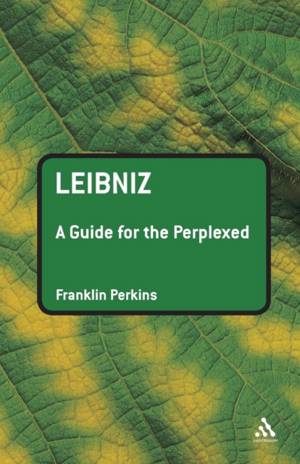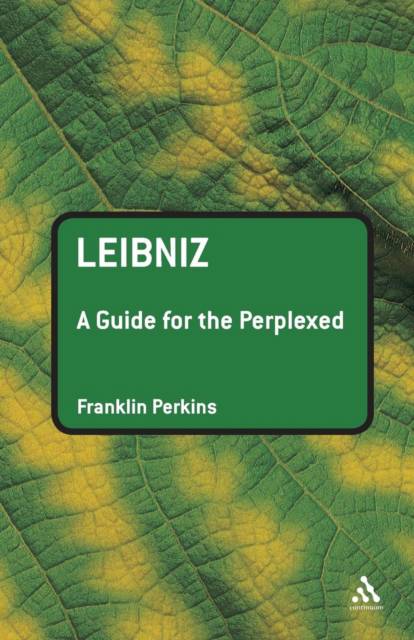
- Retrait gratuit dans votre magasin Club
- 7.000.000 titres dans notre catalogue
- Payer en toute sécurité
- Toujours un magasin près de chez vous
- Retrait gratuit dans votre magasin Club
- 7.000.0000 titres dans notre catalogue
- Payer en toute sécurité
- Toujours un magasin près de chez vous
Description
Gottfried Leibniz is one of the most influential and important European philosophers of the early modern period. Although he wrote no single comprehensive explanation of his philosophy, his contributions to areas of philosophical thought range from mathematics to cultural exchange. However, his ideas often seem strange and abstract and his tendency to harmonize different views can be hugely puzzling for the reader. Students of Lebniz's work and thought regularly face very particular intellectual challenges.
Leibniz: A Guide for the Perplexed is a clear and thorough account of Lebniz's philosophy, providing an ideal guide to the important and complex thought of this key philosopher. The book covers the whole range of Leibniz's thought, offering detailed examination of the key areas of his ideas, including the intersections between his metaphysics, epistemology, ethical and political thought and his famous claim that reality consists of monads (unities). Geared towards the specific requirements of students who need to reach a sound understanding of Leibniz's thought, the book provides a cogent and reliable survey of his work and ideas. This is the ideal companion to the study of this most influential and challenging of philosophers.
Gottfried Leibniz is one of the most influential and important European philosophers of the early modern period. Although he wrote no single comprehensive explanation of his philosophy, his contributions to areas of philosophical thought range from mathematics to cultural exchange. However, his ideas often seem strange and abstract and his tendency to harmonize different views can be hugely puzzling for the reader. Students of Lebniz's work and thought regularly face very particular intellectual challenges.
Leibniz: A Guide for the Perplexed is a clear and thorough account of Lebniz's philosophy, providing an ideal guide to the important and complex thought of this key philosopher. The book covers the whole range of Leibniz's thought, offering detailed examination of the key areas of his ideas, including the intersections between his metaphysics, epistemology, ethical and political thought and his famous claim that reality consists of monads (unities). Geared towards the specific requirements of students who need to reach a sound understanding of Leibniz's thought, the book provides a cogent and reliable survey of his work and ideas. This is the ideal companion to the study of this most influential and challenging of philosophers.
Spécifications
Parties prenantes
- Auteur(s) :
- Editeur:
Contenu
- Nombre de pages :
- 184
- Langue:
- Anglais
- Collection :
Caractéristiques
- EAN:
- 9780826489210
- Date de parution :
- 10-07-07
- Format:
- Livre broché
- Format numérique:
- Trade paperback (VS)
- Dimensions :
- 143 mm x 215 mm
- Poids :
- 235 g

Les avis
Nous publions uniquement les avis qui respectent les conditions requises. Consultez nos conditions pour les avis.






